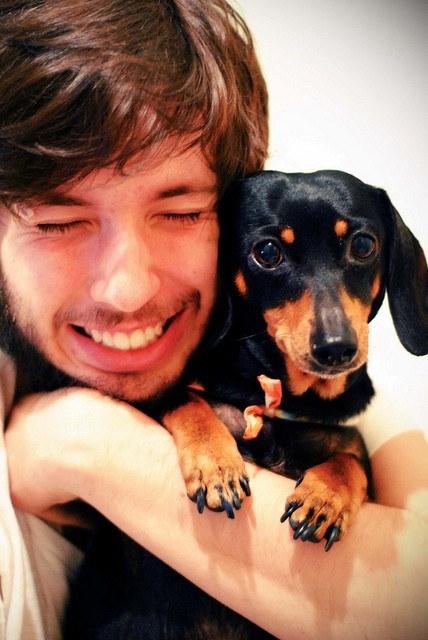Pets Make You Lose Sleep at Night: Study

Many pet owners have difficulty sleeping peacefully at night, according to a study.
Some people love going to sleep with their cat or dog cuddled in their bed. But having pets around while sleeping may not be a good idea, suggests a new Mayo Clinic research. Pet owners often end up being sleep deprived because of the disturbances created by their pets at night.
In their survey conducted during 2002, the experts found only one percent of their patients blamed their pets for being unable to sleep comfortably at night. The number rose to 10 percent in 2013 indicating irregular sleep-wake patterns are common in people who have fostered pets. For the study, experts surveyed 110 patients from the Mayo Clinic Center for Sleep Medicine in Arizona to note their regular sleep cycles and assess the main reasons for sleep disorders. The participants mostly had dogs, cats and birds as pets. They were interviewed about what generally disturbed their slumber at night and number of pets.
Around 46 percent of the patients had pets and 42 percent of these subjects had more than one pet. Majority of the participants said behaviors of their pets like 'snoring loudly, whimpering, squealing and wandering 'disturbed their sleep. The need to take dogs out at night for a walk or emergency medical needs also made pet owners lose their sleep. Even though many subjects did not consider their pet's needs and behaviors to be disturbing, a notable number of people with two or more pets were vexed by the lack of sleep.
Some participants were awakened early by their parrots and birds squeaking in the morning.
Insufficient sleep can have both long and short-term consequences on health. People who sleep less or do not sleep for required number of hours experience recurrent mood swings, difficulty remembering and decline in thinking. Long term sleep deprivation can give rise to obesity, heart diseases, diabetes and even reduce life span.
"When people have these kinds of sleep problems, sleep specialists should ask about companion animals and help patients think about ways to optimize their sleep," said Lois Krahn, study author and psychiatrist at the Mayo Clinic, in a news release.
The research was presented at the 28th annual meet of Associated Sleep Professional Sleep Societies.
Jun 04, 2014 08:11 AM EDT





